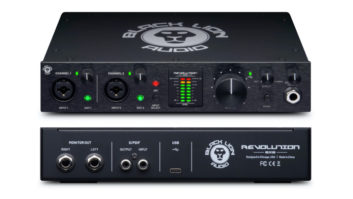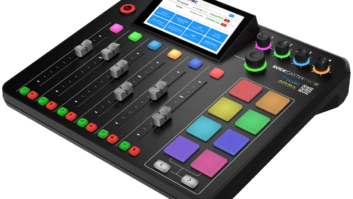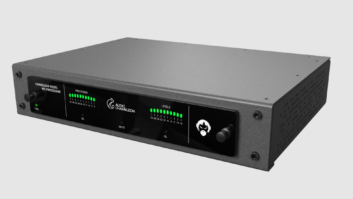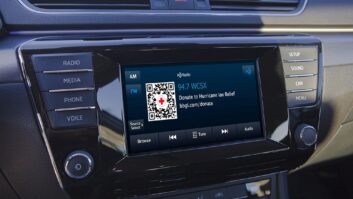While a Senate Panel Clears the Concept, the Fate of a Telecom Rewrite Remains Uncertain
So-called “audio flag” language is part of a rewrite of the Telecom Act passed by the Senate Commerce Committee in June. It’s an important hurdle for a concept that broadcasters say could impede HD Radio and end up costing them a lot of money.
But final passage of the overall Telecom Act was far from certain as the calendar turned into July.
The issue pits record labels and songwriters against satellite and terrestrial radio broadcast organizations as well as receiver makers.
Supporters want Congress to legislate a flag in order to stem music sale losses from downloads. Opponents say the legislation impinges on consumer rights and would stymie satellite radio sales and stop the HD Radio rollout. Terrestrial and satellite radio organizations prefer to work out the issue without a congressional mandate.
The language as passed by the committee would not ban new handheld, portable satellite radio devices that have recording, storage and playback capabilities. However it would set the stage for future regulation of the ability of these devices – and for HD Radios – to make private copies of digital content.
No floor vote for S. 2686 had been scheduled at press time. Sen. Ron Wyden, D-Ore., put a “hold” on the bill to keep it from reaching the floor for reasons unrelated to the radio provisions. A hold can lead to a filibuster.
Also, committee Chairman Sen. Ted Stevens, R-Alaska, said on the eve of the committee vote he did not yet have the 60 votes needed for Senate passage. Indeed, after the vote, the ranking Democrat on the committee, Alaska’s Sen. Daniel Inouye, released a multi-page set of preferred revisions.
Even if the Telecom Act rewrite passes the Senate, it’s unclear whether it could be reconciled with the narrower House version. Frequently, bills that emerge from House-Senate conference committees are stripped of several of their controversial elements; this happened with the first Telecom Act 10 years ago.
The audio flag also faces problems in the House. A stand-alone bill has been introduced, but the language is not part of the telecom measure approved by that chamber.
Aside from the process hurdles facing passage of a flag this year, insiders also point to a shortened legislative calendar as November elections approach.
Review board
The broadcast flag system, if passed, would consist of two parts: the “flag” itself – a technology to mark the content as copy-protected – and rules to define how the devices handle flagged content, perhaps including restrictions on operations like multiple copying or playback.
The committee approved language that would authorize the FCC to establish a “review board.” This would be made up of representatives of various entities with a stake in the outcome; the board would be charged with developing audio flag technology regulations within a year, plus a possible six-month extension.
If the group failed to turn in a flag proposal, the FCC could – but wouldn’t be obliged to – initiate a proceeding to determine what, if any, digital audio copyright protections are necessary, according to the amendment. NAB confirmed this interpretation of the language.
Audio flag is one of two radio-related provisions in the Senate bill; the other is an amendment concerning LPFM (see sidebar).
LPFM Amendment Makes HeadwaySens. John McCain, R-Ariz., and Maria Cantwell, D-Wash., persuaded members of the Senate Commerce Committee to include their LPFM amendment as part of S. 2686, the Telecom Act rewrite.
The language, if passed by the Senate, would instruct the FCC to drop third-channel protections of full-power FMs in order to fit more low-power stations into markets.
McCain has pushed the language before and it has passed the committee only to die on the floor.
Democrat Frank Lautenberg of New Jersey included an exemption that would prevent new LPFMs from acquiring a frequency in his state; the exemption is for full-power FMs “licensed in states with more than 3 million housing units and a population density greater than 1,000 people per square mile.”
Full-power noncoms that carry radio reading services on their subcarriers would be exempt and receive third-adjacent channel protections.
The Prometheus Radio Project said the vote “marks a major step towards the expansion of low-power FM radio to the large cities of the United States, and potentially hundreds, if not thousands, of other communities across this country.”
NAB lobbied hard against the LPFM language. It urged lawmakers to defeat the amendment and “preserve clear radio signals for listeners.”
Its efforts include distributing to lawmakers e-mailed MP3 recordings of purported third-adjacent-channel interference to WGMS(FM) at 103.5 MHz from WWZZ(FM) 104.1, a short-spaced station, recorded in 2004.
Prometheus dismissed NAB’s CD as “misleading.” NAB spokesman Dennis Wharton replied to Radio World, “There’s nothing misleading about the interference documented by NAB.”
After committee passage of the McCain amendment, the Future of Music Coalition said in a statement: “Not only does LPFM provide a boost to the music community across the country, it also reinvigorates radio itself. It’s long past time for the big broadcasters to recognize that LPFM is not a threat, but rather another method to bring listeners back to terrestrial radio.”
Radio restrictions
The same week during which the Senate committee voted on the audio flag, House lawmakers debated it.
Clear Channel Radio Executive Vice President/Chief Legal Officer Andy Levin and Consumer Electronics Association President/CEO Gary Shapiro told lawmakers that audio broadcast flag legislation would strangle the fledgling HD Radio rollout by introducing uncertainty into the market.
Such legislation could also end up costing consumers two to three times what they pay now for satellite radio recording devices, Shapiro said in his testimony before a subcommittee of the House Commerce Committee.
Members discussed a bill by Rep. Mike Ferguson, R-N.J., that authorizes the FCC to “impose licensing conditions on digital audio radio to protect against the unauthorized distribution of transmitted content,” according to the document.
Recording Industry Association of America President/CEO Mitch Bainwol and Stewart Harris of the Songwriters Guild of America said illegal and legal digital downloads are siphoning profits from the record labels and shrinking the livelihoods of artists. They said Congress needs to step in and make terrestrial and satellite radio organizations and receiver manufacturers agree to a technological solution to prevent consumers from re-distributing content.
Encrypted
New devices such as the Pioneer Inno XM2go, Samsung XM Helix and Sirius S50 basically turn radio into downloading services, according to Bainwol. No such portables allow consumers to record and store material HD Radio content, but such products are expected; the RIAA wants an audio flag to apply to those also.
XM and Sirius say the controversial products are designed so stored content stays on the device and cannot be re-distributed.
Sirius Satellite Radio Deputy General Counsel Ruth Ziegler said, “Contrary to reports, the S50 does not provide for automated services. S50 songs are encrypted and cannot be taken off the device.”
Under the 1992 Audio Home Recording Act, Sirius is paying “millions” in dollars in royalties for digital audio recording devices to the record labels, royalties that are shared with musicians and others in the music industry, she said.
The audio flag bill would prevent “the very first copy a consumer makes in his own home,” blocking a long-accepted practice, Ziegler said. “Congress should not enact legislation until the recording industries clearly state what is the threat. We are far from that point.”
RIAA’s Bainwol said, “We have no problem with audio recording, but when the experience mimics the Rhapsody experience, that’s wrong.” Rhapsody is a digital music download service.
He practically scoffed at the $2 million a year labels receive annually under the Audio Home Recording Act for digital audio devices, saying the RIAA believes 2 million illegal downloads are performed each day.
Ziegler countered that Sirius pays the labels twice: for music royalties for broadcast, and for the S50 under the Home Recording Act. She also said the agreement between Sirius and RIAA is private and valued in the millions, not just $2 million.
The RIAA says these devices allow users to “cherry-pick” songs out of the order in which they originally aired, working like a download service, and therefore it argues labels should receive more than they do now from device manufacturers. The RIAA has sued XM over the Inno, as reported here, seeking $150,000 in damages for every song copied by XM subscribers. XM and CEA are fighting the suit.
Shapiro and Ziegler noted that the RIAA chose to say the compensation agreed to previously under the AHRA wasn’t enough now that the devices have come to market.
“We did cut a deal and it’s kicking in now, said Shapiro. “It’s only $2 million because they haven’t been sold yet; $8 to $10 per device goes directly to the music industry. Sirius and XM give monthly (the label) a monthly fee.” The satellite radio companies are “the largest payers” of fees to the music industry, Shapiro said.
HD-R ‘delicate’
While terrestrial radio pays royalties to rights-holders such as ASCAP and BMI, broadcasters do not pay the labels extra for consumer download and distribution, as services such as Apple iTunes must. The RIAA wants the extra money from broadcasters and believes Congress should mandate that the FCC force terrestrial radio to pay it.
Levin, testifying for NAB, said it’s too early for Congress to step in. Regardless, he said, lawmakers should not mandate an audio flag.
“This HD Radio rollout is entering a delicate stage. Success will depend on whether a critical mass will follow these early adopters.” Approximately 800 stations are airing their primary signals in digital at a cost of about $100,000 for each conversion and 1,200 more stations plan to convert, he said.
Industry players, including stations and others, plan to spend about $400 million in the next two years to promote HD Radio, Levin testified. “Any uncertainty … and technical requirements could deal a fatal blow” to that rollout and hurt stations, manufacturers, automakers, and retailers.
Lawmakers asked him whether Clear Channel or NAB is working with manufacturers on next-generation HD Radio devices, such as those on the market from XM and Sirius.
Levin said, “I talked to our chief engineer yesterday and asked that. The answer was there is no discussion about next-generation devices.” All energy is being expended “on getting first-generation receivers introduced,” said Levin.
“Consumers don’t have to adopt HD Radio, so we’re in a precarious position to get manufacturers to produce HD Radios, consumers to buy them and automakers to put them in their car.” The rollout is “completely market-driven,” he said.
Audio flag talks continue between NAB and RIAA, their representatives said; Levin testified those should be given a chance to work.
Rep. Barbara Cubin, R-Wyo., asked Bainwol about other sticking points besides payment. Bainwol identified usage rules for the audio flag and a ban on so-called “cherry-picking” of songs.
Levin said, “While we agree in concept to the notion of no cherry-picking, there are nuances that still need to be worked out. The recording industry’s view of what that is is fairly broad; it would turn back the clock on what is lawful use to consumers. …We need to take a hard look at what consumers are entitled to before it’s memorialized in legislation.”
When pressed by several committee members, Levin said he thought the group might reach agreement within 6 to 12 months.
Subcommittee Chair Fred Upton, R-Mich., noted that he doesn’t think “Congress getting involved is the best solution (except) when there seems to be a lack of negotiation.”
Cubin said if the group can’t work out the issue, “We’re ready to get to work to fix it.”
CEA’s Shapiro said, “There’s no excuse for an audio flag. The problem is, in the short term, the content industry reacts to every new technology with fear. We are barraged with bills and lawsuits.
“The RIAA wants everyone to halt their business while this is worked out. We have to stop measuring creativity by the business plans of 10 to 12 companies,” referring to the music labels.
Saying she was speaking for consumers, Public Knowledge President Gigi Sohn said the audio flag is unnecessary and would hamper innovation by placing the FCC as an arbiter of which products come to market.












